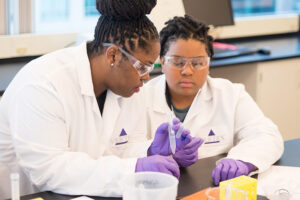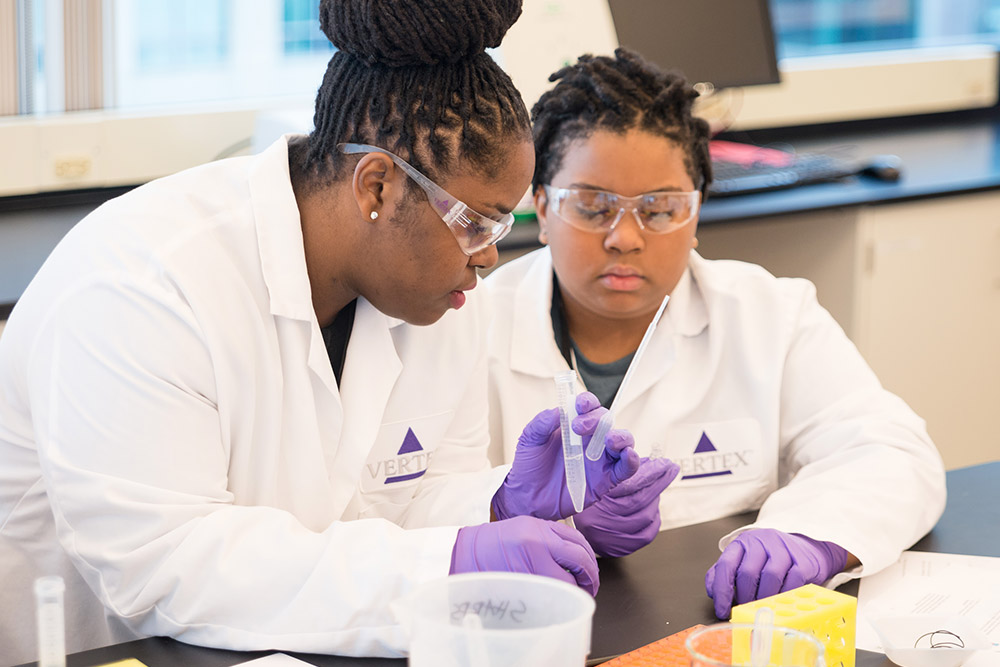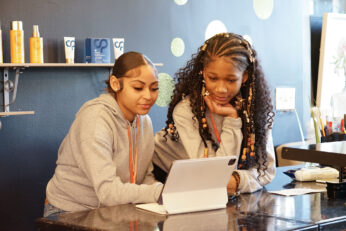Taylor Norman, Apprentice Learning Program Coordinator at the Boston Teachers Union School was invited to give a parting speech to the eighth grade class. We were inspired and wanted to share her words.
As you launch into high school, you will have a chance to choose your friends, choose your interests, and choose what path you will take. Although these choices aren’t permanent, make sure you’re building a firm and steady foundation. You have the option to start over and be who you want to be, without questions, or maybes. So use that opportunity and take action. Don’t wait for the approval of your peers, because they’re figuring it out, just as you are. Make your plan and ask for help. Tell them about your plan of action, and that you can’t do it alone.
I’ve helped many of you explore your career interests and earn an apprenticeships and summer jobs through Apprentice Learning. As that process unfolded, I got to learn more about each of you, and what makes you so unique. Like the fact that the majority of you like white bread because wheat bread is too crumbly. Some students like to blurt out their answers, while others refused to answer when called upon. How many of you like to help adults but don’t like being told what to do by adults. About ½ of you like an even layer of Mayonnaise on both slices of the bread while others like a big glob of Mayo on ONE side…
But what made you even more similar, was the fact that each of you had goals and dreams to be someone different, and to be a better version of your 6th grade self, or your 7th grade self. And even for the few students that I’ve met for the first time this year, better versions of your 8th grade selves.
Each year you made improvements, through action. And I’ve watched. We’ve watched.
I remember many of you saying, “Ms. T, I’m going to be in your class next year because I want a summer job. Just wait!” So I waited. We’ve waited. Not for the opportunity to get you employed for the summer, but for the lifetime of opportunities that await you…when you realize that you don’t need us as much as you did before.
Getting up for school every day, completing those assignments, making a pact to stay after school with your friends so you can all receive tutoring, supporting the one person in your crew who may have needed to attend. That demonstrates empathy, teamwork, proper planning, care, and commitment. You’ve stuck together, refusing to leave your classmates or friends behind. But keep in mind, it’s all about action.



